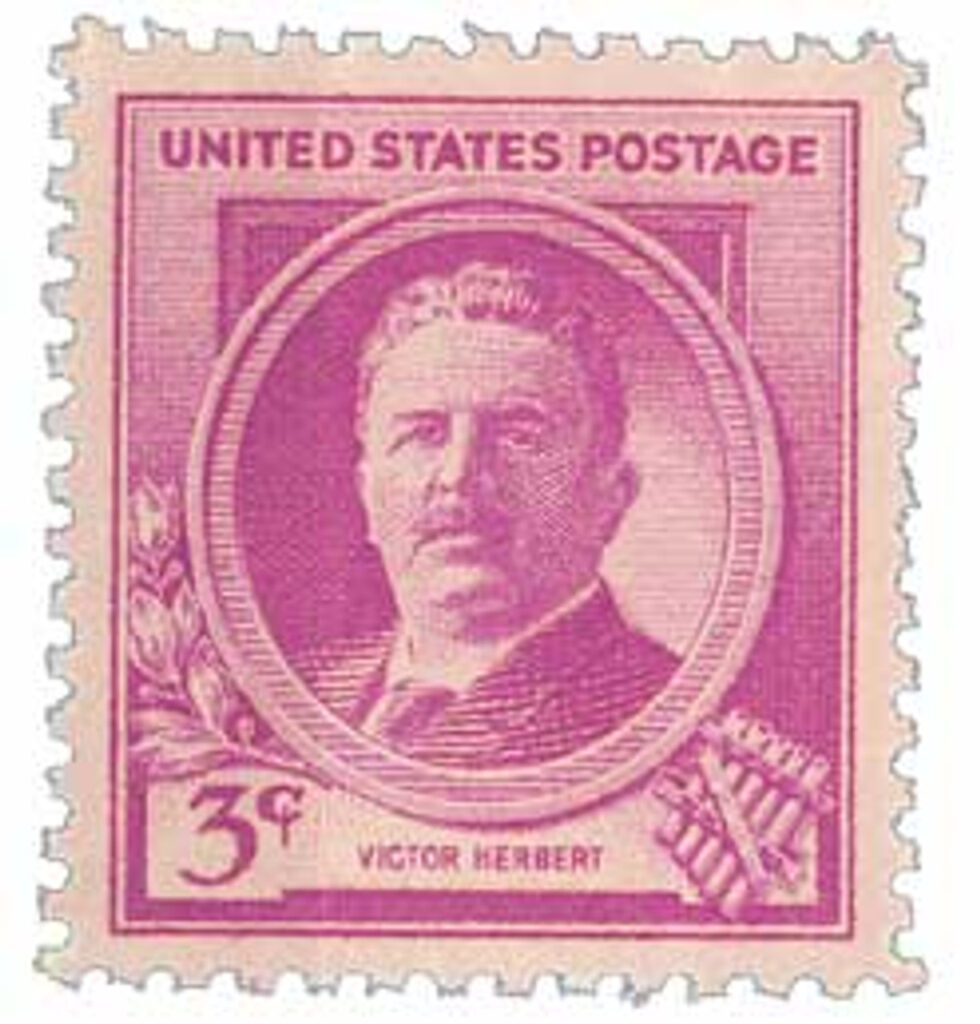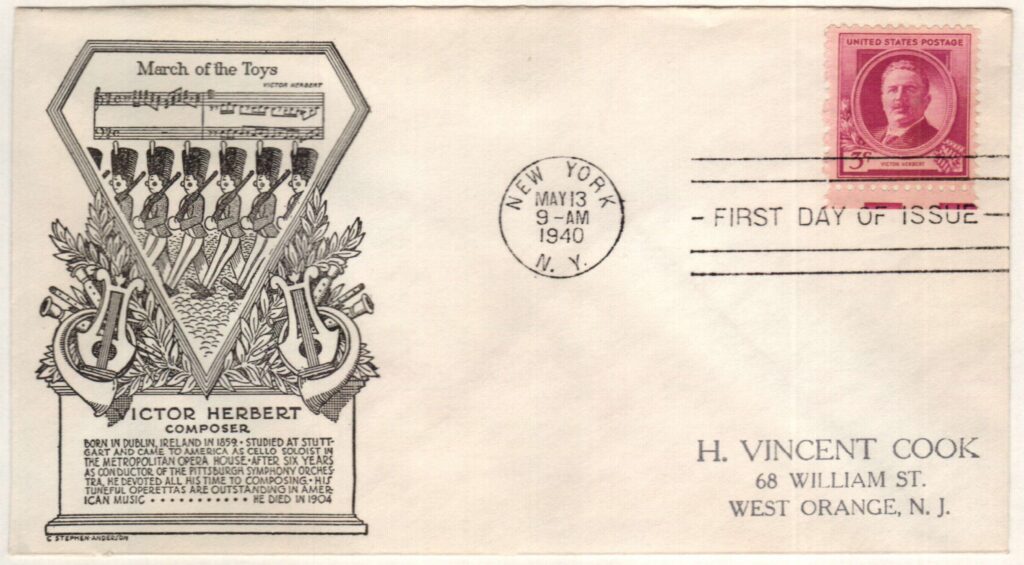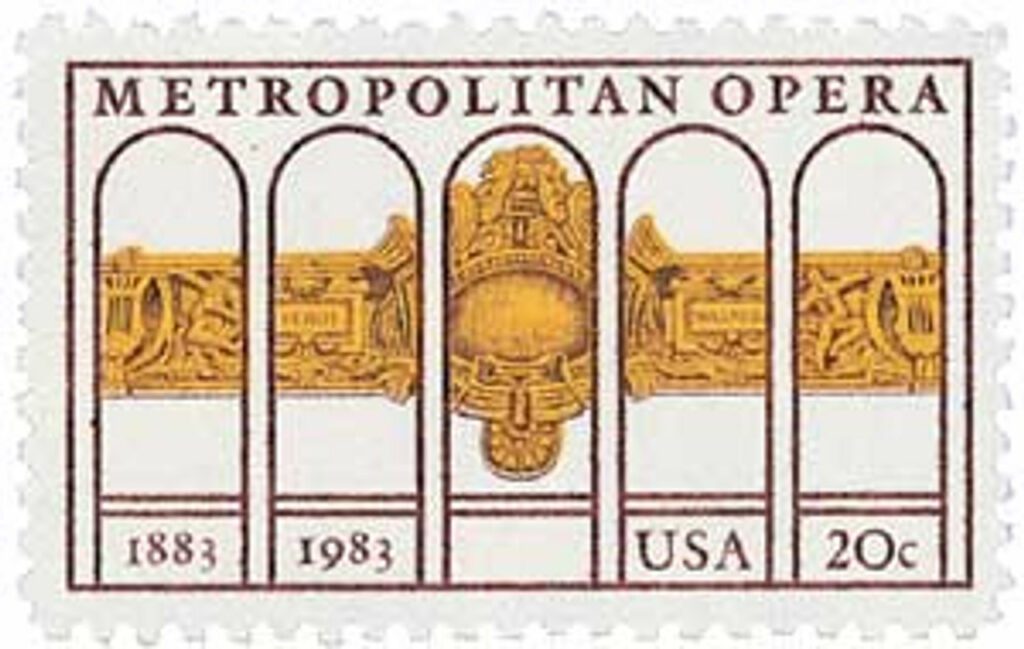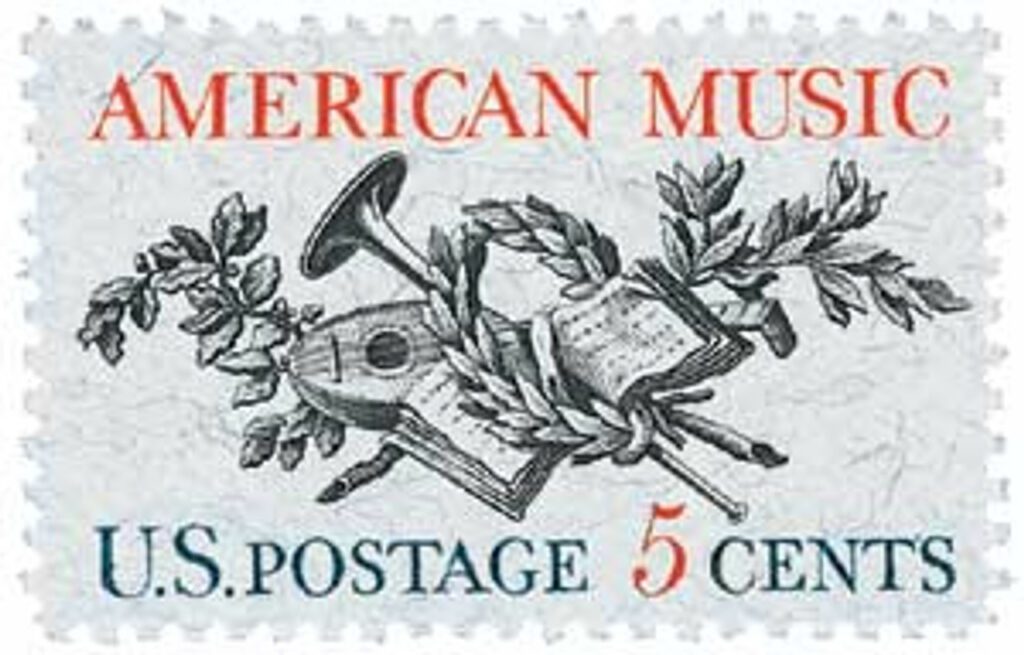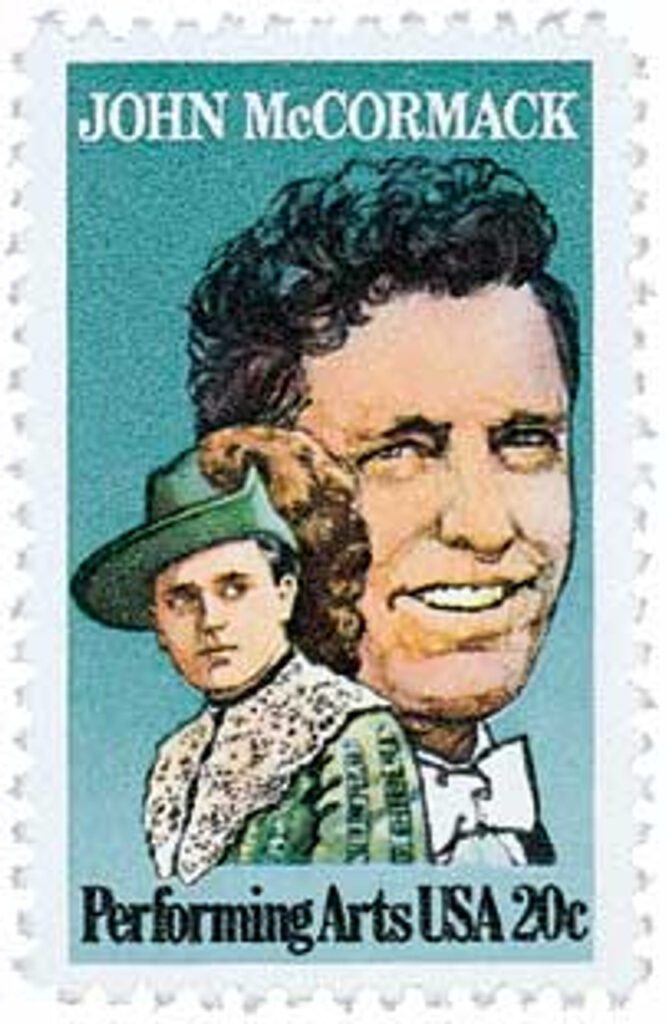Victor August Herbert was born on February 1, 1859, in Guernsey, United Kingdom. He was one of the most prolific composers of his day, as well as a celebrated cellist, conductor, and champion for the legal rights of composers.
Growing up, Victor spent some time living with his grandfather, the Irish author and composer Samuel Lover. His grandfather frequently hosted notable musicians, writers, and artists, exposing young Herbert to the creative world at an early age. Initially, he planned to become a doctor, but the schooling for that was very expensive, so he opted for a career in music. Herbert learned to play the piano, flute, and piccolo before committing himself to the cello. After studying cello, music theory, and composition, he graduated from the Stuttgart Conservatory in 1879.
Herbert had played professionally in several notable orchestras before his graduation and continued to do so after. He spent five years in the Stuttgart court orchestra, during which time he produced his first musical compositions. Herbert married opera singer Therese Förster in 1886 and the couple moved to America later that year to accept positions at the Metropolitan Opera in New York City. On the trip to America, Herbert befriended conductor Anton Seidl, who would become an important mentor.
Earning just $40-$50 a week with the orchestra, Herbert offered music lessons his spare time to make money. Herbert gained recognition in the New York music community and made his cello solo debut playing his own composition in 1887. One review said his “style is infinitely more easy and graceful than most other cello players. Herbert continued to work as a cello soloist in a number of significant orchestras into the 1910s. In 1887, he formed his own orchestra and the New York String Quartet, which put on several free concerts.
In 1888, Seidl made Herbert his assistant conductor in the New York Philharmonic’s summer concert program, a coveted position. Herbert spent 11 seasons with the Philharmonic, serving as assistant conductor, guest conductor, and solo cellist. Herbert was also hired in 1888 to direct a concert tour of the Midwest, exposing audiences there to opera, art songs, and contemporary music.
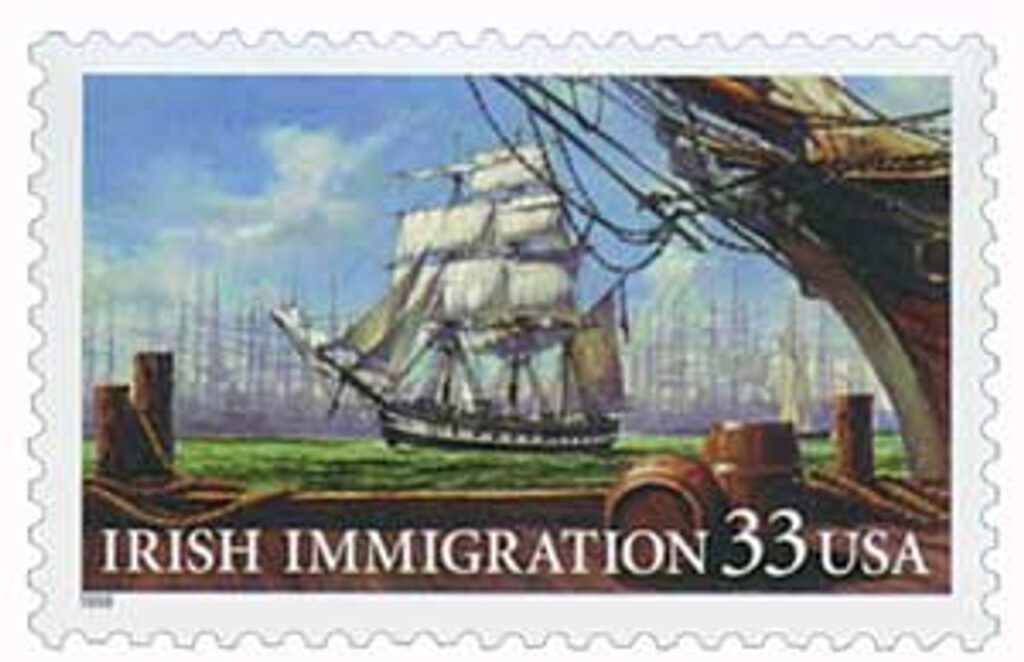
Herbert conducted his own composition, Serenade for String Orchestra, Op. 12, in December 1888. The following year he founded the Metropolitan Trio Club and began teaching cello and composition at the National Conservatory of Music. Herbert was made conductor of the Boston Festival Orchestra in 1890 and achieved significant attention for his 1891 cantata The Captive and his 1892 Irish Rhapsody. In 1894, Herbert became director of the New York National Guard’s 22nd Regimental Band. He remained with the band until 1900, incorporating some of his own compositions into the band’s repertoire. Herbert served as principal conductor of the Pittsburgh Symphony from 1898 to 1904, helping to raise its prominence to the level of New York and Boston orchestras. He established the Victor Herbert Orchestra in 1904 and produced several recordings for Edison Records and the Victor Talking Machine Company.
Over the course of his career, Herbert composed two operas, a cantata, 43 operettas (short, light-hearted operas), music for 10 plays, 31 orchestra compositions, nine band, nine cello, five violin, and 22 piano compositions, in addition to a number of other songs, choral compositions, and orchestrations of other composers’ work. His most famous work was Babes in Toyland (1903), which included characters from Mother Goose nursery rhymes in a Christmas-themed operetta. It also drew influence from the classic ballet, The Nutcracker Suite. It was a big Broadway success and later became a favorite holiday season movie starring the comic team of Laurel and Hardy in 1934. The operetta features an army of toy soldiers that defeat an evil toymaker. The productions have also been called March of the Wooden Soldiers and March of the Toys.
Herbert strongly believed that composers had the right to profit from their works and testified to such in front of Congress, helping lead to the Copyright Act of 1909. A few years later, he was passing through a hotel when he heard one of his songs being played. He hadn’t been paid for his music to be used there, a direct violation of the 1909 copyright law. Herbert was then inspired to form his own organization to combat the illegal use of creative works. On February 13, 1914, he helped found the American Society of Composers, Authors, and Publishers (ASCAP) with the goal of protecting copyrighted music compositions.
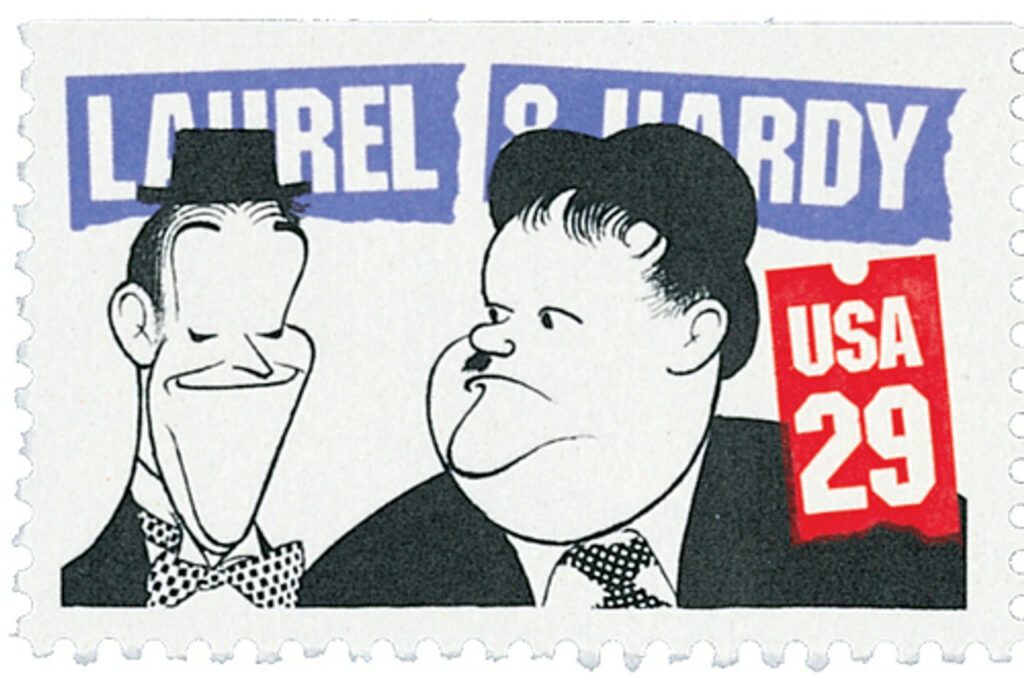
Herbert died from a heart attack on May 26, 1924. He was portrayed in a number of films and many of his works were made into movies or included in films and television shows. A Liberty ship was named in his honor during World War II.
Click here to listed to some of Herbert’s operettas.
| FREE printable This Day in History album pages Download a PDF of today’s article. Get a binder or other supplies to create your This Day in History album. |
Discover what else happened on This Day in History.

